Colonel Vasily Masyuk: I can't help but say about the heroes of the 12th
Black Tuesday 13 July
Voennoye Obozreniye continues to acquaint readers with chapters from the book of memoirs of the commander of the Moscow border detachment, retired colonel Vasily Kirillovich Masyuk (Colonel Vasily Masyuk: Was it really all with me).
Today's chapter tells only about a few fighters from the 12th outpost of the Moscow border detachment of the Group of Border Troops of the Russian Federation in the Republic of Tajikistan. These six were awarded the highest award of the Motherland - the title of Hero of Russia - for fighting on that terrible July day on the Tajik-Afghan border.
The battle at the 12th outpost took place on Tuesday, July 13, 1993.
During an attempt to break through to the territory of Tajikistan by a large group of Tajik and Afghan militants, Russian border guards most of the time repelled enemy attacks, after which they retreated, having lost 25 people killed. Later, on the same day, the outpost was repulsed. As a result of the battle, six border guards were awarded the title of Hero of the Russian Federation (including four posthumously).
In fact, each of these guys should be discussed separately. It would be right that way. Their fates, plans after retirement, hopes - everything was cut short in an instant. And then there was no longer the country to which they swore allegiance, and not one of them had a mother living on the land that they defended in that sultry summer as their own. Perhaps the feat of our grandfathers in the Great Patriotic War did not allow them to act differently.
The chronicle of events according to the reports of the fighters to me developed as follows.
In the morning at 3:50 am the sentries sitting in the trench behind the KRS building noticed people walking from the direction of Gun-Dar. This attack was expected (at the outpost for the last six months they even slept with weapons). The border guards immediately rose on the command "To battle!"
"Spirits", noticing the movement, methodically began to shoot from the heights (Sari-gore is translated as a pit in the mountains: an outpost on a plateau - a circle of heights) from recoilless vehicles and helicopter NURs. Main goals: office, weapons room, communication room, dormitory, DOS. The warehouses of ATV and PFS were kept at gunpoint in order to profit later.
The outpost actually fought against soldiers and officers of the regular Afghan army - from the 55th division, along with cover from the mujahideen. Although today it is not easy to say who else joined them? The number of attackers was over 250 (this was five times the number of the outpost).
The battle lasted 11 hours.
Andrey Viktorovich Merzlikin
Born on November 8, 1968 in the village of Ternovka, Ternovsky District, Voronezh Region. Soon the Merzlikin family moved to the city of Lipetsk. Andrei's father, Viktor Stepanovich, worked as an engineer at Agroprom, and his mother, Zoya Mikhailovna, taught children in elementary grades until retirement.
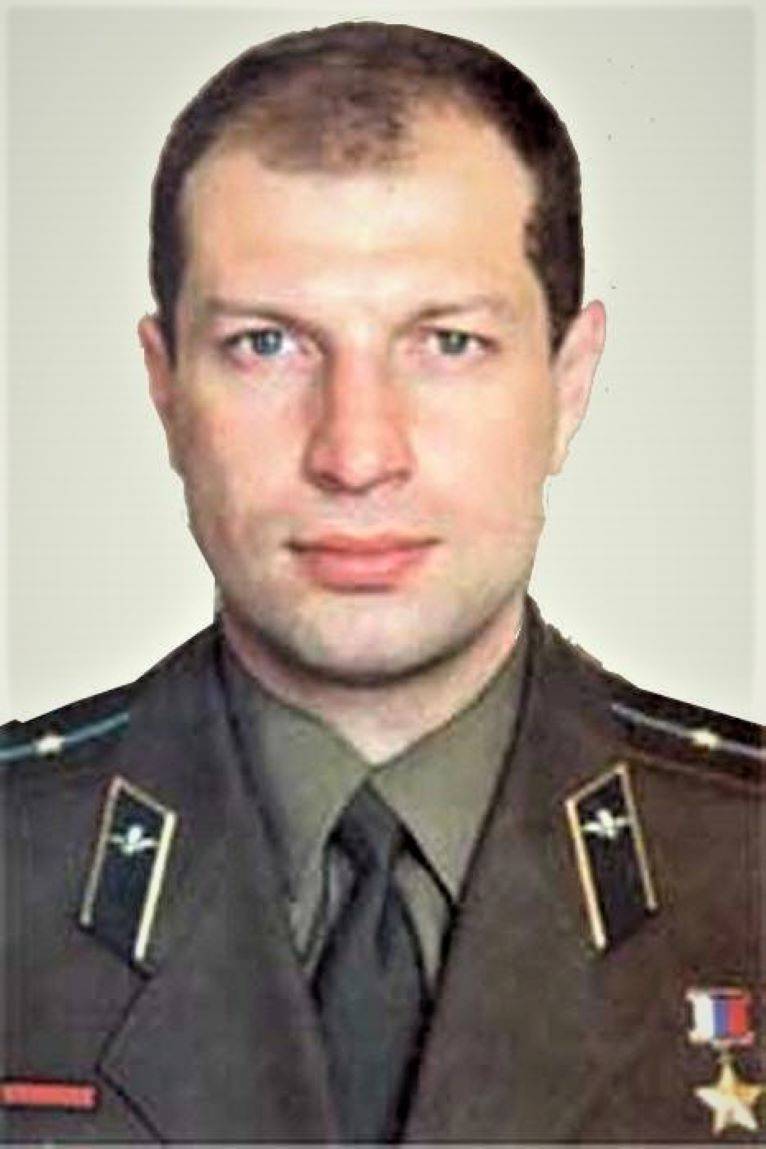
Andrey always helped around the house, did not hang out on the street, did not smoke, went in for sports, participated in the work of the Dzerzhinets opera detachment. He liked the works of Valentin Pikul, especially the novel I Have the Honor. After graduating from high school in the summer of 1986, Andrei went to Alma-Ata to enter the border school, but did not qualify for the competition.
Returning to Lipetsk, he became a student at the Polytechnic Institute, but quickly realized that foundry was not his vocation. At the end of October of the same year, Andrei turned to the military registration and enlistment office with a request to call him into the border troops. They went to meet him. A month later, he arrived at the Sheremetyevo OKPP, where he put on a border uniform for the first time.
After serving urgently, Merzlikin passed the exams in 1988 and was enrolled in the Moscow Higher Border Command School. He studied willingly and well, was actively involved in many sports, became a candidate for master of sports in hand-to-hand combat.
After graduating from college in 1992, he was sent to the North-Eastern border district to the post of deputy head of the outpost of the 61st border detachment. The outpost was located in the village of Novaya Inya on the shores of the Sea of Okhotsk, where he went with his young wife Natasha and little son Nikita.
In April 1993, Lieutenant Merzlikin was seconded for six months to the Group of Border Troops of the Russian Federation in the Republic of Tajikistan as deputy chief of the 12th frontier post of the Moscow border detachment.
Here he participated in hostilities against Afghan militants and armed formations of the Tajik opposition. He was twice wounded and shell-shocked.
Hero of the Russian Federation.
After treatment, Andrei Merzlikin returned to his outpost in the village of Novaya Inya. In 2005, he was awarded the next military rank ahead of schedule. He was awarded the Order of Courage, the Medal of the Order of Merit to the Fatherland with swords of the 2nd degree, eight medals and the badge "For Service in Counterintelligence" of the 3rd degree.
He is currently a major general in the reserve and is in the civil service.
Sergey Alexandrovich Evlanov
Born May 24, 1973 in the village of Vargashi, Kurgan Region. The guys in the village were drawn to Sergei, respected him for justice, strength and dexterity. He was considered a recognized authority among his peers.
Sergey ruled in games with boys, in sports, hiking in the woods and fishing. He played hockey well. After graduating from eight classes, he entered a vocational school with a specialization "mechanic". In the fall of 1991, the time came for service. Among many of his fellow countrymen, he was sent for further service in the Group of Border Troops of the Russian Federation in the Republic of Tajikistan.
The conscripts were brought to the location of the Moscow border detachment in the evening. A week later, the tall Sergei Yevlanov and several other soldiers were selected to a group, which was sent to the city of Termez to a sergeant's school.
After studying at school on July 20, 1992, Sergei arrived at the 12th outpost of the Moscow border detachment. And then the outfits, duty and household work.
The young sergeant quickly entered the new team, became friends with the guys. He performed the duties of a squad commander, and became a driver concurrently, as he had a driver's license.
Dawn came on July 13, 1993. Suddenly, Afghan and Tajik militants opened fire at the outpost at the same time from all sides. Sergeant Evlanov fought bravely and courageously against the bandits. In this battle, he was seriously wounded.
Hero of the Russian Federation.
In the hospital, Sergei was immediately put on the operating table. Yevlanov's young body underwent the operation well, without any complications. Sergei was discharged from the hospital ahead of schedule, and he went home to heal his wounds.
In July 1993, Sergei Yevlanov was awarded the military rank of "senior sergeant", and in October he retired to the reserve and returned to his native village.
In 1994, Sergei Alexandrovich moved to the village of Bulanash, Sverdlovsk Region, where he married Oksana Anatolyevna. In 1995, their son Denis was born. In 1997, the Evlanovs moved to Yekaterinburg, where Sergei Alexandrovich began to work in the security services.
Vladimir Fedorovich Elizarov
Born on November 20, 1972 in the city of Kalinin, now Tver. In kindergarten Volodya went to "round the clock", then he studied at a boarding school from the first to the eighth grade. Vladimir grew up without a father, from an early age he tried to be an assistant to his mother.
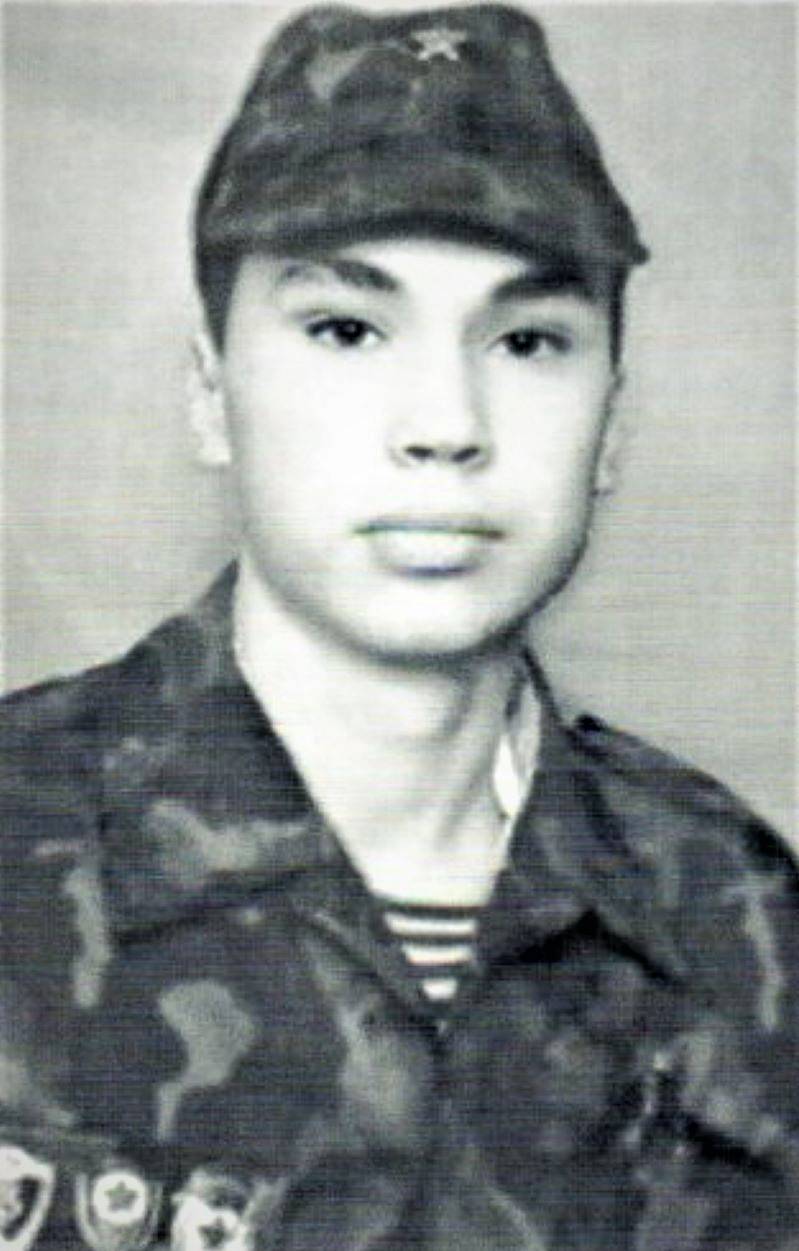
Volodya's mother, Valentina Sergeevna, worked as a plasterer all her life, her hard work and modesty were passed on to her son. From childhood I got used to independence. Vladimir grew up strong and healthy. While studying at school, he was engaged in fencing and boxing, loved to play football, enrolled in the parachute section at the DOSAAF district flying club and even made three jumps. With his height of almost 190 cm, all sports were easy for him.
Volodya enthusiastically read science fiction novels and stories. Calm and thoughtful, he did everything thoroughly. After graduating from the eighth grade of school, Vladimir entered the vocational school, which he graduated in 1991 and became a turner.
Vladimir worked for three months at the plant, and in the fall of 1991 he was drafted into the ranks of the Soviet Army. He ended up in a training regiment in the city of Kovrov. Since 1992, he is a junior sergeant, then a sergeant, the commander of an anti-aircraft missile launcher of a guards motorized rifle regiment.
In the fall of 1992, Sergeant Elizarov, and with him several dozen guys from the regiment, were sent to the border troops. Vladimir arrived at the 12th outpost "Sari-gore" of the Moscow detachment of the Group of Border Troops of the Russian Federation in the Republic of Tajikistan.
Elizarov was appointed the squad leader, dog service instructor. It was a new business for him, but in a short time Vladimir managed to achieve a high professional level, which was marked with the badge "Excellent worker of the border troops" 1st degree.
Armed clashes and shelling for Russian border fighters in Tajikistan in the early nineties of the XX century became commonplace. Almost every night, militants and Afghan mujahideen tried to break through the border. But the border guards were always on the alert and gave a worthy rebuff to the violators.
Elizarov participated in many armed clashes with Afghan and Tajik militants. The battle on July 13, 1993 was the last for Sergeant Elizarov - he died a hero's death.
The Hero of the Russian Federation was buried with military honors in Tver.
Sergei Nikolaevich Borin
Born on October 14, 1973 in the city of Izhevsk in Udmurtia. Borins lived in a typical five-story building on Gagarin Street. Father, Nikolai Aleksandrovich, worked as a foreman, loved to go fishing with his son.
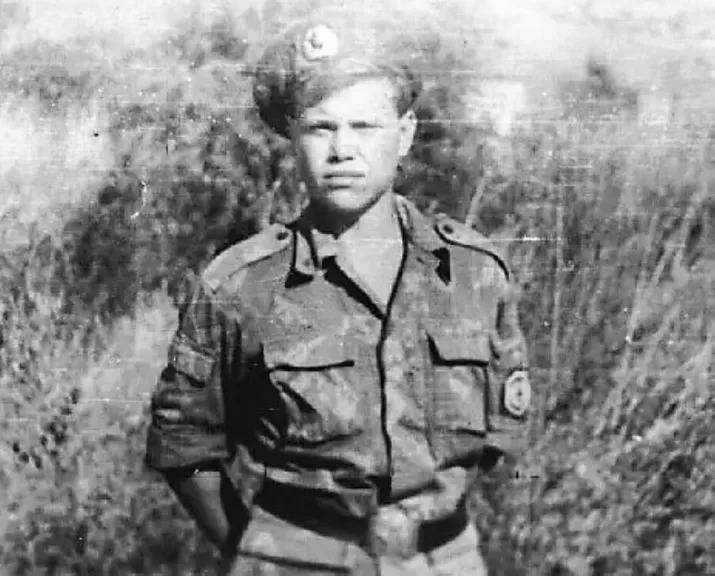
Seryozha grew up a trouble-free child, always helped his mother Lyudmila Elizarovna, never quarreled with his sister Oksana. He was decisive, cheerful, distinguished by friendliness, and drew well.
After finishing the eighth grade, Sergei entered vocational school No. 9. At vocational school, he became a member of the military-patriotic club, studied in a zoological circle. The management of the school characterized Borin as a seasoned and tactful, reasonable and calm student.
In 1991 he graduated from vocational school and went to work as a turner at the Izhevsk Mechanical Plant. Only four months he managed to work there. In the autumn of the same year, he was drafted into military service and sent to the border troops.
Sergei Borin first arrived at the Trans-Baikal border at a training unit, then he was sent to the Group of Border Troops of the Russian Federation in the Republic of Tajikistan. Private Borin was appointed a machine gunner at the 12th outpost "Sari-gore" of the Moscow border detachment.
Armed clashes with Afghan and Tajik militants have become commonplace here. Sergey Borin also took part in them. Another terrorist attack at dawn on July 13, 1993 was the last for Sergei, in which he died a hero's death without letting go of the machine gun.
Hero of the Russian Federation Sergei Borin was buried at the Izhevsk cemetery on the Alley of Afghan Heroes. Technical School No. 9 (now the Mechanical Lyceum), in which Sergei studied, is named after him. On March 29, 2008, a memorial plaque to the Hero of Russia border guard Sergei Borin was installed on the building of the school.
Every year Izhevsk hosts a freestyle wrestling tournament among young men in memory of Hero of Russia Sergei Borin.
Sergey Alexandrovich Sushchenko
Born on April 28, 1973 in the city of Dalmatovo, Kurgan Region. His father, Alexander Nikolaevich, worked at a local dairy, his mother, Maria Konstantinovna, was a kindergarten teacher. Parents raised Sergei and his sister Lyudmila.
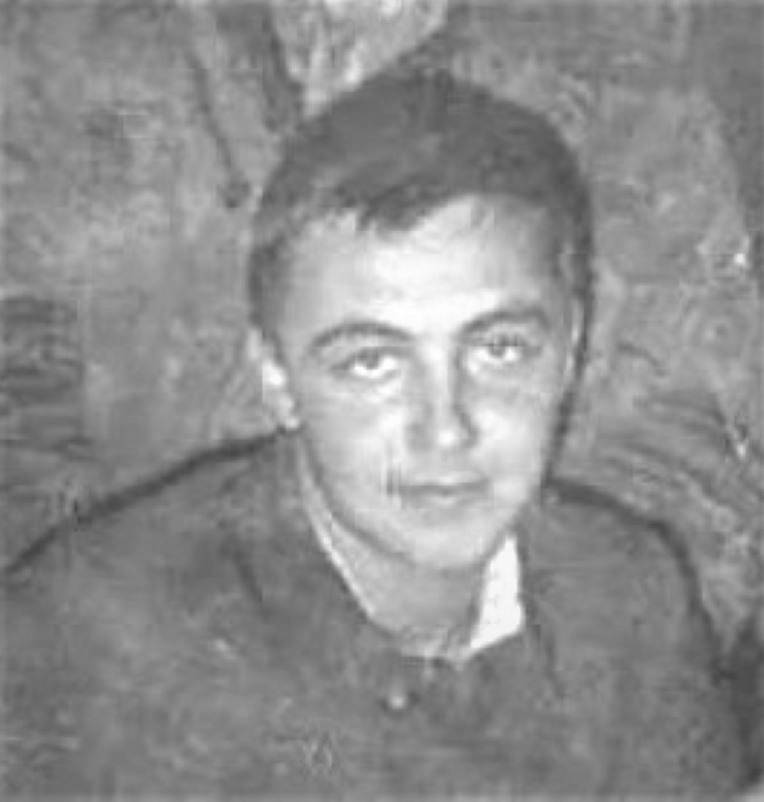
Seryozha was a handsome guy. Short, dark and strong. He wore a short sporty hairstyle. Thick eyebrows and long eyelashes accentuated his kind brown eyes.
Gentle, affectionate Seryozha was a favorite of the family. In kindergarten, he loved fun games and funny stories... At school, in addition to studying, he devoted a lot of time to sports. He was fond of athletics and more than once became the champion of the city, he loved to play football.
Seryozha was kind, sympathetic, became independent early and was very collected. I always helped my parents. Easily played with other guys. After finishing the eighth grade, Sergei successfully passed the exams and entered the Shadrinsky technical school, which he graduated in 1991.
Sergei Sushchenko was drafted into the border troops on December 18, 1991 and sent to the Central Asian border district. After the "training" Sushchenko served at the checkpoint, and after graduating from the sergeant school he arrived at the 12th Sari-gor outpost of the Moscow detachment of the Group of Border Troops of the Russian Federation in the Republic of Tajikistan.
Sergeant Sushchenko was appointed dog service instructor - squad leader. But he still thoroughly mastered the duties of a medical instructor. Sergei served excellently, received several awards from the command. He has always been an example for comrades.
When repelling an attack by bandits at dawn on July 13, 1993, the machine gunner Sergeant Sushchenko distinguished himself. Sergei held back the onslaught of the advancing enemy until he died.
The Hero of the Russian Federation was buried at home in the city of Dalmatovo.
Igor Viktorovich Filkin
Born on November 30, 1972 in the village of Ibred, Shilovsky District, Ryazan Region. The family lived on Sadovaya Street in house number 4. His father, Viktor Nikolaevich, passed away when Igor was 13 years old. Mom, Raisa Grigorievna, alone raised Igor and his younger brother Pavel.
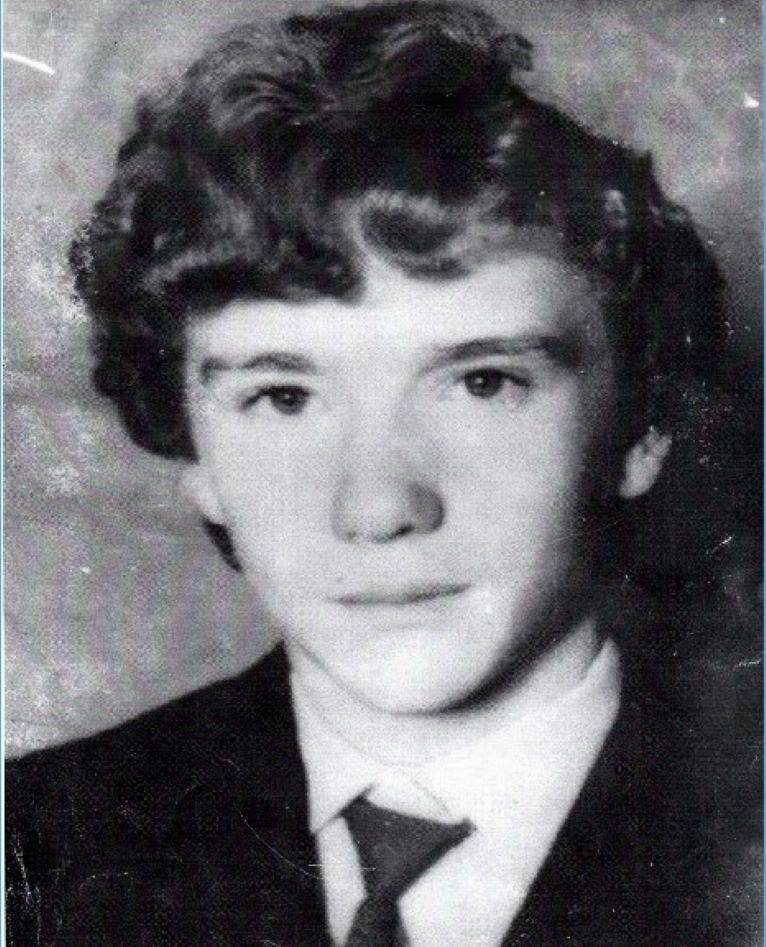
At school he was a capable student, behaved calmly and balanced. I read a lot, especially fond of science fiction and travel descriptions. The magazine "Around the World" became especially revered for him.
After the eighth grade, Igor entered a vocational school in the city of Ryazan, where he was characterized as observant and focused, with a good memory and quick wit.
In SPTU Igor learned to play the guitar. He graduated from the school in 1991, having received the specialty of a gas-electric welder. I went to work in the mechanical shop at the Ibred starch-treacle plant, but did not have to work for long.
In the fall of 1991, Igor was drafted into military service and sent to the border troops, which he himself asked for. After training in a training unit in the Moscow Border Detachment of the Central Asian District, Private Igor Filkin arrived at the 12th border outpost in Tajikistan.
Igor quickly mastered the complexities of border work, skillfully and vigilantly served on the border, perfectly mastered the specialty of a machine gunner.
The summer of 1993 came, and there were several months left until the end of the service. But the early morning of July 13 came when the bandits attacked the border outpost. This battle turned out to be the last for Private Filkin, who heroically died, repelling the enemy's attack.
With military honors of the Hero of the Russian Federation, Igor Filkin was buried in July 1993 at home in the cemetery in the village of Zheludevo next to his father.
In order to perpetuate the memory of the border guards of the 12th outpost of the Moscow detachment of the Group of Russian Border Troops in the Republic of Tajikistan, on November 1, 1993, the heroic border unit was named “Name of 25 Heroes”.
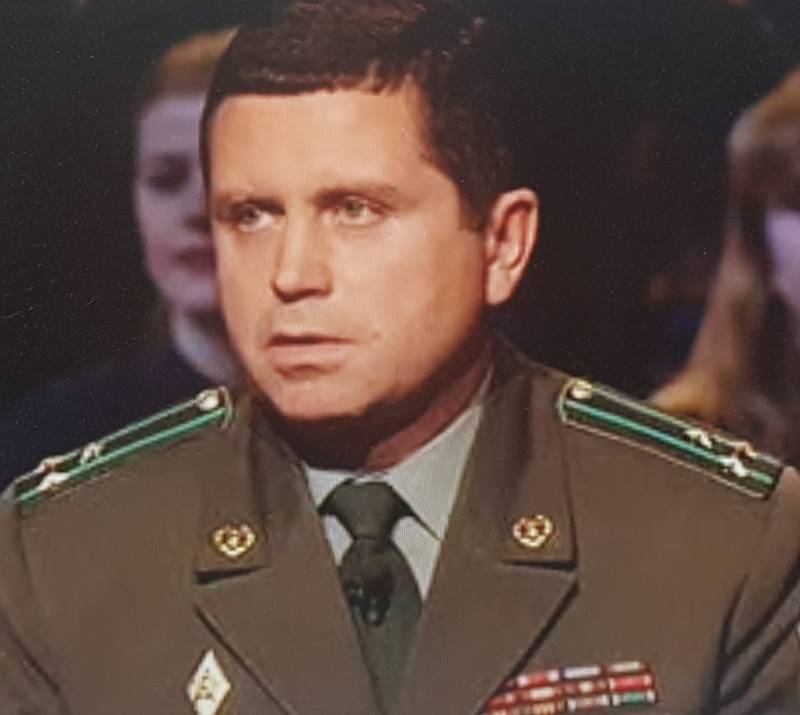
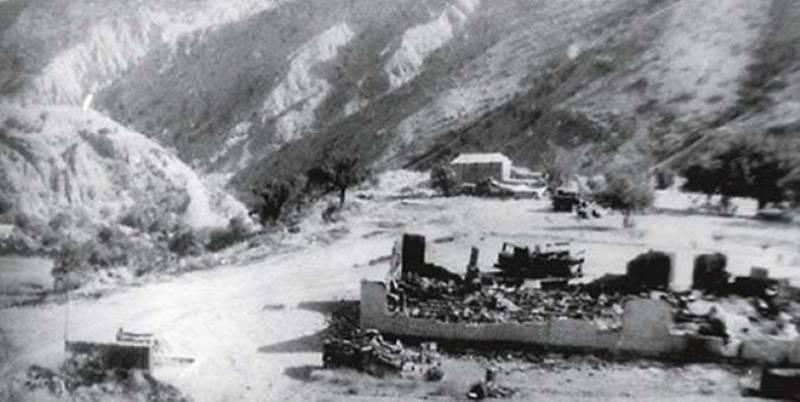
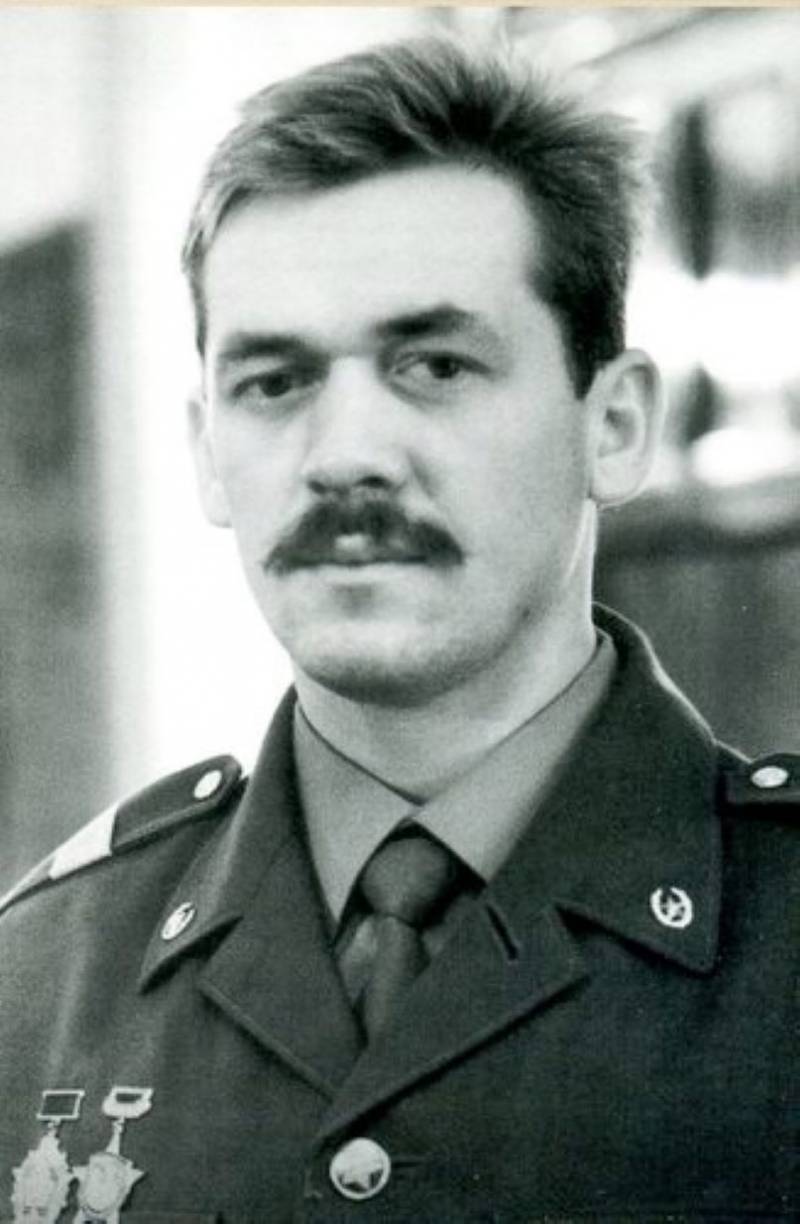
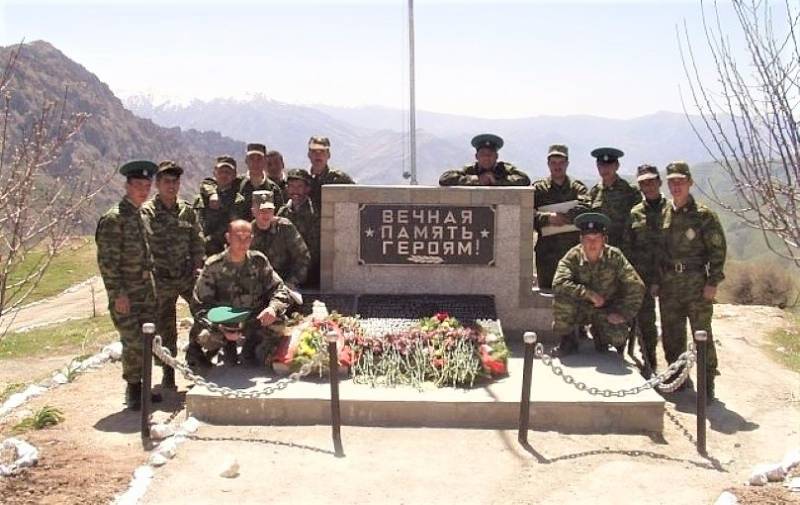
Information